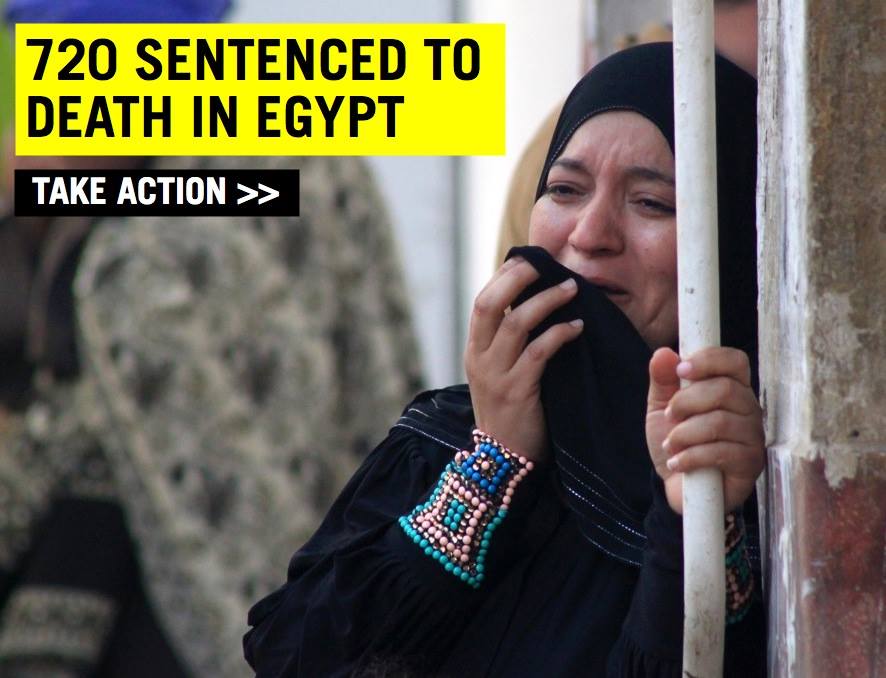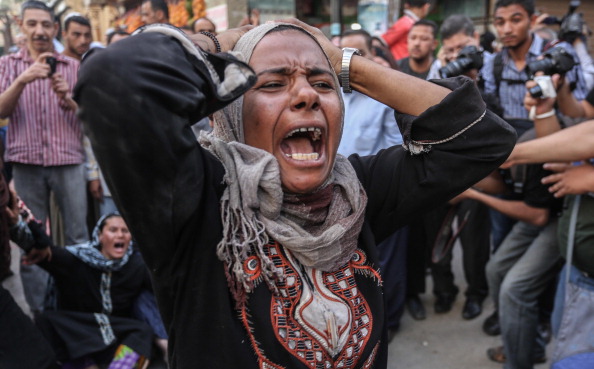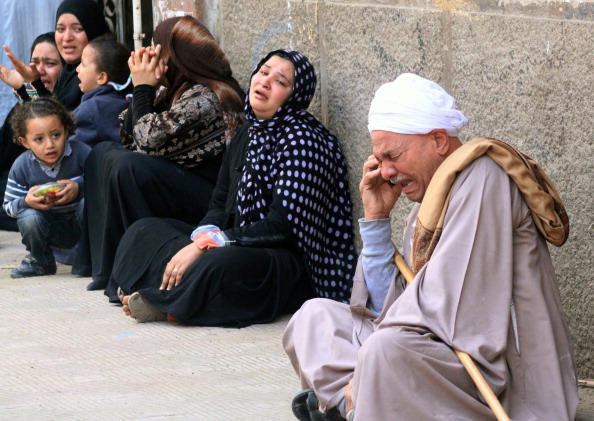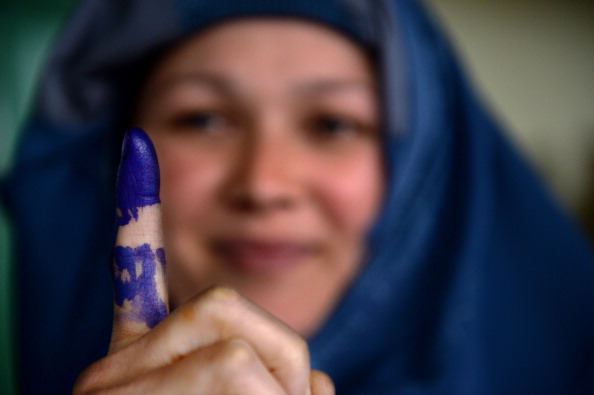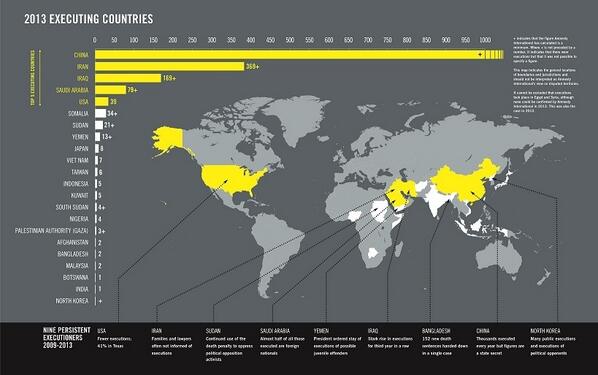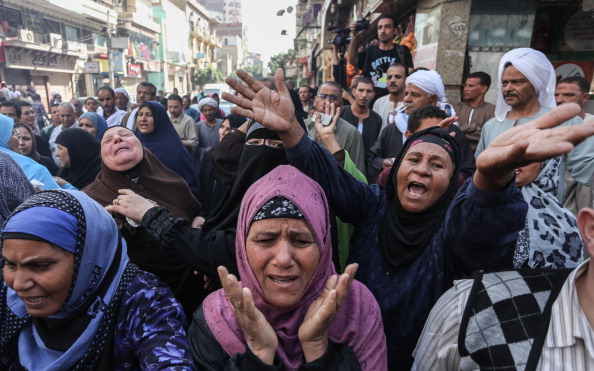
Relatives of the defendants react after an Egyptian court sentenced 638 Morsi backers to death in a mass trial in Egypt (Photo Credit: Ahmed Ismail/Anadolu Agency/Getty Images).
Lives are always at stake when the death penalty is involved. But when the new el-Sisi government is preparing to execute 683 Egyptians, something even more is at stake: the future of the Egyptian judiciary.
On Saturday, an Egyptian court will formally rule on the initial 683 death sentences handed out in April in a case involving the death of a police officer in the August 2013 protests that followed the removal of President Muhamad Morsi. The sentence followed only by a matter of days a second, similar case in which 528 Egyptians were given the death penalty.


